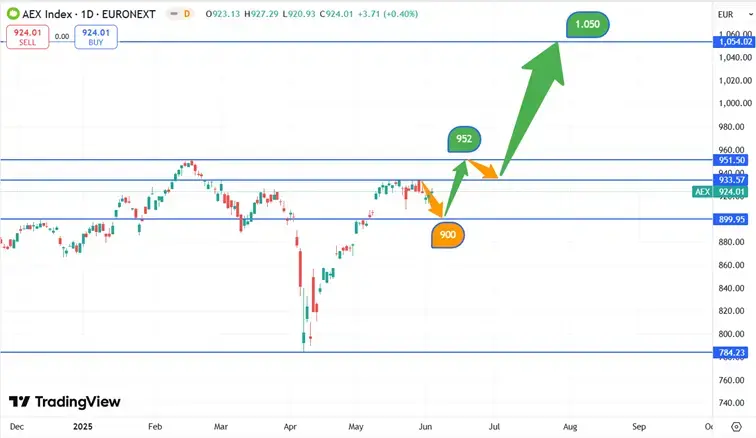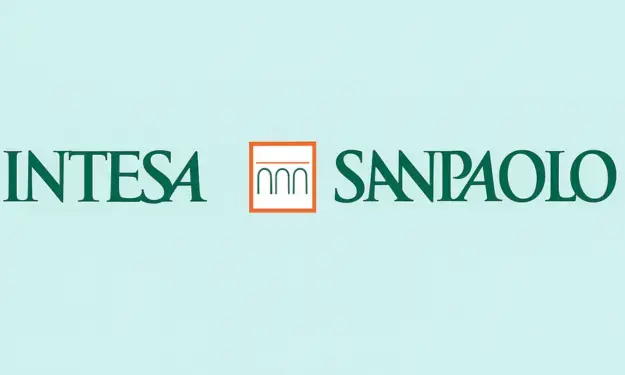Publication date: June 5, 2025

Defense spending by EU member states is to be increased. Since this intention was announced, stock prices of defense-related companies have logically risen sharply.
Especially with the approaching NATO summit in The Hague, the defense sector has momentum and is in the international spotlight. In this article, we look at the political situation surrounding defense and examine whether investing in this politically driven sector can be financially attractive.
NATO summit The Hague of great importance!
To get an accurate picture of the importance of the NATO summit in The Hague for defense, we first outline the situation:
In 2024, the average defense spending of European Union (EU) member states was about 1.9% of their combined gross domestic product (GDP). This represents a marked increase from previous years, in response to increased security concerns and concerted efforts to strengthen military capabilities. For EU countries that are also members of NATO, average defense spending was 1.99% of GDP in 2024, coming close to the NATO guideline of at least 2% of GDP for defense. Incidentally, spending varies widely among EU member states. Poland, for example, spent as much as 4.2% of GDP on defense in 2024, while countries like Ireland and Malta spent less than 1% of their GDP on it.
At the upcoming NATO summit in The Hague on June 24-25, 2025, alliance members are expected to agree to a significant increase in defense spending. NATO Secretary General Mark Rutte has proposed raising the current spending target of 2% of gross domestic product (GDP) to a total of 5% of GDP. This would consist of 3.5% for direct military spending and 1.5% for related investments such as infrastructure and cybersecurity.
This increase comes in response to pressure from the United States, particularly President Donald Trump, who has called for NATO members to contribute more financially to collective defense. Rutte's proposal is seen as an attempt to meet these demands while giving European member states time to gradually increase their defense budgets, with a target date of 2032.
While some countries, such as Germany and the United Kingdom have already announced plans to increase their defense spending, there is resistance from other member states, including Spain which indicates that an increase to 5% of GDP is financially unfeasible. Discussion of this new spending standard will be a central topic at the summit in The Hague.
How much extra money might go to defense in the EU?
Dizzying sums are expected to be invested in defense. If NATO member states decide at the Hague summit to increase defense spending to 3.5 percent of gross domestic product (GDP), this would represent a significant increase in absolute terms for the European Union (EU).
The total nominal GDP of the EU in 2024 is estimated at about €17.95 trillion (€17,950,000,000,000) . At a defense budget of 3.5% of GDP, this means: 3.5% of €17.95 trillion = about €628 billion per year.
By comparison, in 2024, the average defense spending of EU member states was about 1.9% of GDP, or about €341 billion. An increase to 3.5% would thus require an additional investment of about €287 billion per year. An increase in defense spending to 5% of EU GDP would represent an additional investment of €556.5 billion per year.
It is important to note that the proposed increase to 3.5% of GDP for defense spending is still under discussion within NATO and the final decision depends on consensus among member states. This increase would require significant budgetary adjustments from EU member states depending on their individual economic situation and current defense spending.
How has the stock market reacted to the intention to increase defense spending?
The stock market has logically anticipated to a considerable extent the expected increase in defense spending to be discussed at the NATO summit in The Hague. European defense companies in particular have experienced strong share price appreciation since early 2025, driven by both geopolitical tensions and policy proposals for higher defense budgets.
Below in a table some defense-related companies and performance:
|
Company
|
Country
|
Share price appreciation 2025
|
Specialization
|
|
Rheinmetall
|
Germany
|
~ 200%
|
Tanks, ammunition, air defense
|
|
Saab
|
Sweden
|
~ 130%
|
Anti-tank weapons, electronic warfare
|
|
Leonardo
|
Italy
|
~ 77%
|
Electronics, land vehicles
|
|
Thales
|
France
|
~ 80%
|
Cybersecurity, defense electronics
|
|
BAE Systems
|
UK
|
> 45%
|
Various defense segments
|
|
Hensoldt
|
Germany
|
~ 82%
|
Sensors for defense
|
|
Indra
|
Spain
|
~ 118%
|
Defense, air traffic control
|
Investor sentiment and valuations
Analysts note that much of the expected future growth is already reflected in current share prices. Morningstar, for example, classifies Rheinmetall as a five-star stock, but cautions that further share price gains will depend on concrete orders and capacity expansions.
Rheinmetall itself expects defense spending by European NATO member states could rise from €440 billion in 2024 to €831 billion in 2030, provided the defense budget is increased to 3% of GDP. The company foresees opportunities for orders worth at least €300 billion in the period 2025-2030.
What is our opinion and expectation for the defense industry.
Companies in the defense industry will see an increase in orders in the coming years. However, the market has already anticipated a huge growth which makes valuations very high.
Moreover, there are still uncertainties that could influence further price movements:
- Capacity expansion: Companies such as Rheinmetall need to significantly increase their production capacity to meet expected demand.
- Political decision-making: Actual implementation of increased defense budgets depends on political consensus within the EU and NATO.
- Geopolitical developments: A possible de-escalation of conflicts may affect the demand for defense products.
Given the above, we expect a correction in the share price of defense-related stocks. Some air needs to be taken out of the tightly inflated share prices first. This could be because it will take much longer and much more effort to substantially increase the defense budgets of all member states after all.
This does not alter the fact that the sector can grow substantially for the longer term. Defense in the EU needs to start catching up after years of allowing the sector to weaken somewhat.



.svg)

.webp)

.webp)
.webp)



